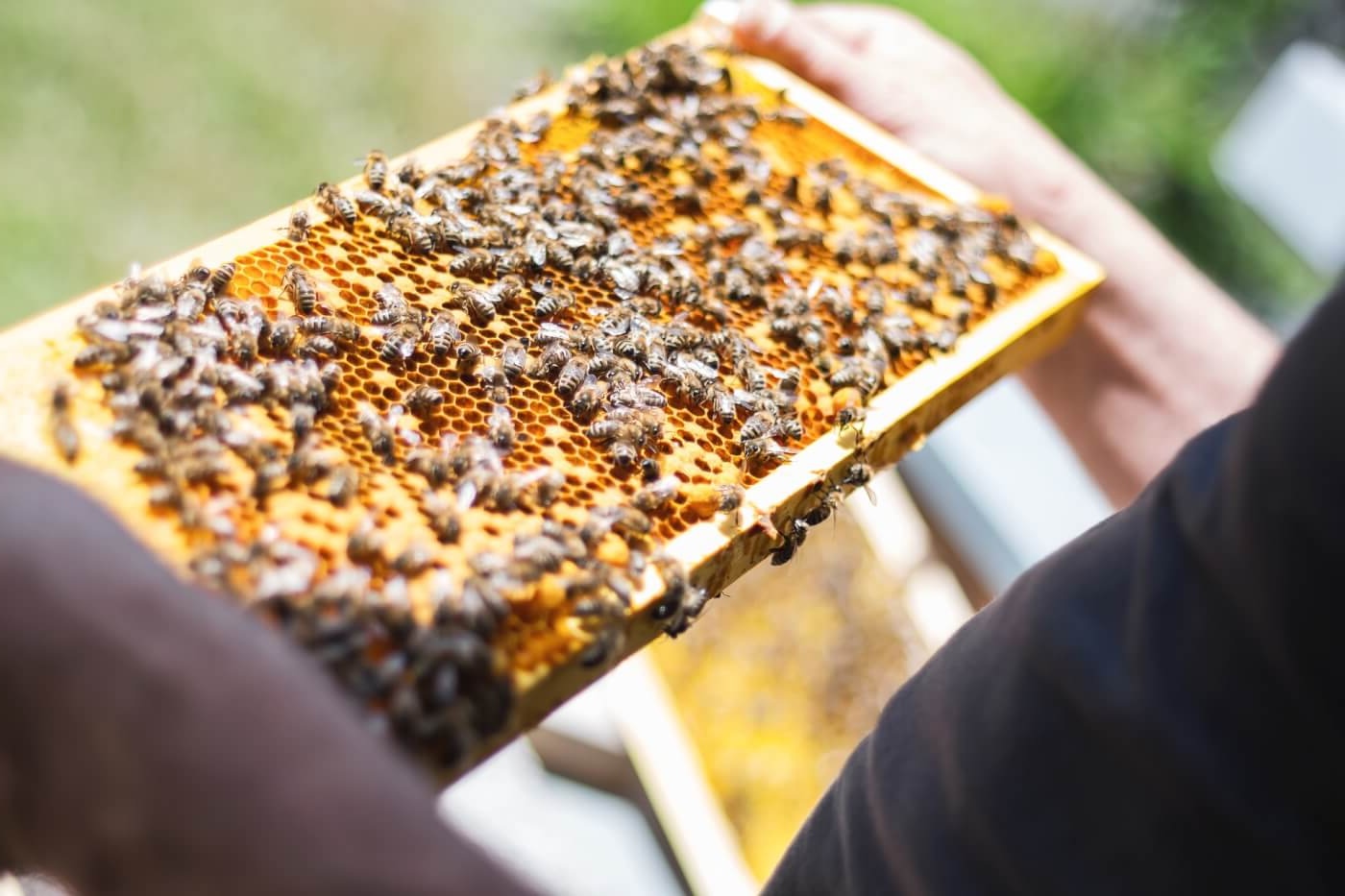
Beekeeping is more than just a hobby; it's a fascinating world buzzing with activity. Have you ever wondered how many bees live in a hive or how honey is made? Beekeeping involves managing colonies of bees to produce honey, beeswax, and other products. These tiny creatures play a crucial role in pollinating plants, which helps grow many of the foods we eat. Did you know a single bee can visit up to 5,000 flowers in one day? Or that honey never spoils? Whether you're a seasoned beekeeper or just curious, these 25 facts will give you a deeper appreciation for the incredible world of beekeeping.
Key Takeaways:
- Beekeeping is crucial for our food supply. Bees pollinate one-third of the food we eat, including fruits, vegetables, and nuts, making them essential for food diversity and production.
- Beekeepers face challenges. Threats like varroa mites, pesticides, climate change, and Colony Collapse Disorder impact bee colonies and their ability to thrive.
The Buzz About Beekeeping
Beekeeping, also known as apiculture, is the practice of maintaining bee colonies. These industrious insects play a crucial role in our ecosystem. Let's dive into some fascinating facts about beekeeping.
-
Honeybees are the only insects that produce food eaten by humans. Their honey is not just sweet but packed with nutrients.
-
A single bee colony can contain up to 60,000 bees. Each bee has a specific role, from workers to drones to the queen.
-
Bees communicate through a "waggle dance." This dance helps them share information about the location of food sources.
-
Honey never spoils. Archaeologists have found pots of honey in ancient Egyptian tombs that are over 3,000 years old and still edible.
The Life of a Beekeeper
Beekeepers play a vital role in maintaining healthy bee populations. Their work ensures that bees continue to thrive and pollinate crops.
-
Beekeepers use smoke to calm bees. The smoke masks alarm pheromones, making the bees less aggressive.
-
Protective gear is essential for beekeepers. This includes a bee suit, gloves, and a veil to prevent stings.
-
Beekeeping dates back to ancient Egypt. Hieroglyphs depict early beekeepers collecting honey.
-
Modern beekeepers often use Langstroth hives. These hives have removable frames, making it easier to manage the bees and harvest honey.
The Importance of Bees
Bees are more than just honey producers. They play a critical role in pollinating plants, which is essential for food production.
-
Bees pollinate about one-third of the food we eat. This includes fruits, vegetables, and nuts.
-
Without bees, many plants would struggle to reproduce. This would lead to a significant decrease in food diversity.
-
Bees are responsible for pollinating 70 of the top 100 human food crops. This includes favorites like apples, almonds, and blueberries.
-
The economic value of bees' pollination services is estimated to be around $15 billion annually in the United States alone.
Challenges in Beekeeping
Beekeeping is not without its challenges. Beekeepers face numerous threats that can impact their hives.
-
Varroa mites are a significant threat to bee colonies. These parasites weaken bees and can lead to colony collapse.
-
Pesticides can harm bees. Chemicals used in agriculture can be toxic to bees, affecting their health and behavior.
-
Climate change impacts bee populations. Changes in temperature and weather patterns can disrupt bees' natural cycles.
-
Colony Collapse Disorder (CCD) is a phenomenon where worker bees abandon the hive. This leaves the queen and young bees to fend for themselves.
Fun Facts About Bees
Bees are fascinating creatures with unique behaviors and characteristics. Here are some fun facts that highlight their uniqueness.
-
Bees have five eyes. They have two large compound eyes and three smaller simple eyes.
-
A bee's wings beat 200 times per second. This rapid movement creates the buzzing sound we hear.
-
Bees can recognize human faces. They use a technique similar to how we recognize faces, by piecing together features.
-
The queen bee can live up to five years. She is the only bee in the colony that lays eggs.
Beekeeping Around the World
Beekeeping practices vary globally, influenced by local traditions and environmental conditions.
-
In Slovenia, beekeeping is a national tradition. The country has a long history of apiculture, and beekeepers are highly respected.
-
Ethiopia has the highest number of bee colonies in Africa. Traditional beekeeping methods are still widely used.
-
In New Zealand, Manuka honey is highly prized. This honey is known for its medicinal properties and unique flavor.
-
China is the largest producer of honey. The country produces about 500,000 tons of honey annually.
-
Urban beekeeping is on the rise. Cities like New York, London, and Paris have seen an increase in rooftop hives.
The Buzz About Beekeeping
Beekeeping's more than just a hobby; it's a vital part of our ecosystem. Bees play a crucial role in pollination, which helps grow the food we eat. Plus, they produce honey, beeswax, and other products we use daily. Whether you're a seasoned beekeeper or just curious, understanding these buzzing insects can be both fun and rewarding.
Remember, beekeeping requires patience, knowledge, and a bit of bravery. But the rewards—like fresh honey and a thriving garden—are well worth it. So, if you're thinking about starting, do some research, get the right gear, and maybe even join a local beekeeping club. You'll be helping the environment and gaining a fascinating new hobby. Happy beekeeping!
Frequently Asked Questions
Was this page helpful?
Our commitment to delivering trustworthy and engaging content is at the heart of what we do. Each fact on our site is contributed by real users like you, bringing a wealth of diverse insights and information. To ensure the highest standards of accuracy and reliability, our dedicated editors meticulously review each submission. This process guarantees that the facts we share are not only fascinating but also credible. Trust in our commitment to quality and authenticity as you explore and learn with us.
